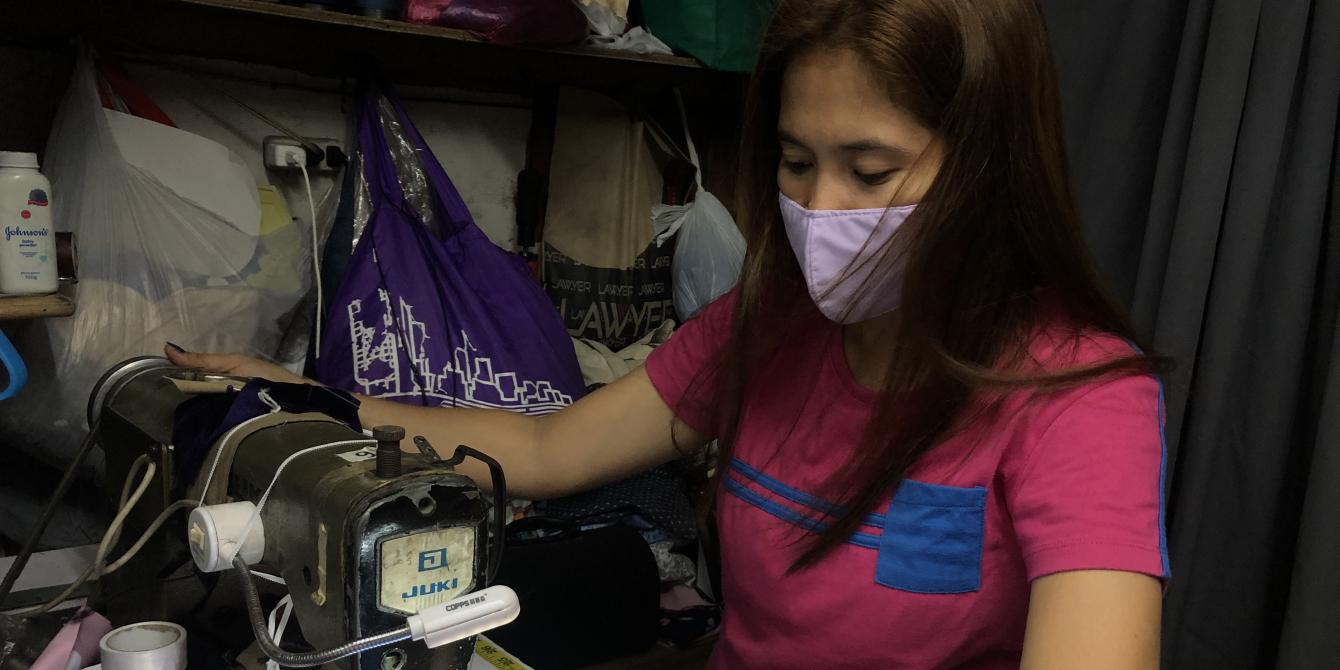‘Millions of Asians urgently need developed countries to stop blocking their access to vaccines’

Across Asia, a surge in coronavirus cases is prompting fresh restrictions and pushing people further into poverty. While fast-moving vaccination drives are allowing developed economies to bounce back, most Asian countries have managed to vaccinate less than 10 percent of their populations. As the WTO TRIPS Council meets for talks today, the Peoples Vaccine Alliance-Asia is calling upon leaders of G7 countries to stop blocking the proposal to waive intellectual property rights for vaccines, diagnostic, therapeutic and other medical supplies and equipment necessary to fight the pandemic.
Thirty-six year old Syde is among millions of Asians, struggling to feed their families amidst lockdowns, job cuts and shrinking economies. Syde worked as a site engineer for a construction company in the Philippines but following the outbreak of COVID-19, a lockdown was imposed and her company was forced to close operations.
Syde worked from home for two weeks and received a salary for the first month but when the lockdown was extended she was only given a food allowance. In February 2021, Syde lost her husband and her income was barely enough to feed her two children. Syde and a few women from her neighborhood began to stitch facemasks to feed their families but she worries about contracting the virus. “For now, we’re getting by but I don’t know how long we can survive like this. If one of us gets sick, I don’t know what we’ll do.” she said.
Millions like Syde are bracing themselves as a sharp rise in coronavirus cases is prompting restrictions, factory closures and lockdowns. In May, South Asian countries such as India, Nepal and Pakistan saw a catastrophic surge in cases, while in Southeast Asia, Malaysia saw per capita cases soar past India and total cases in Thailand, Vietnam, Cambodia, Laos and East Timor have more than doubled in the past month.
Governments in these countries are attempting to scale up vaccination programmes, but lack of supplies means Asian countries are far from reaching their targets. In total, less than 7 percent Asians have received at least one dose of the vaccine. Countries such as Pakistan where less than 3 percent and Vietnam where not even 2 percent have received a jab, lag far behind the G-7 countries such the United States and United Kingdom where over 50 percent of adults have been vaccinated.
New calculations from the People's Vaccine Alliance, found that last month people in developed countries were 77 times more likely to be offered a vaccine than those living in the world’s poorest countries. In May, G-7 countries were vaccinating people at a rate of 4.6 million people a day, meaning, if this rate continues, everyone living in G7 nations should be fully vaccinated by 8 January 2022. At the current rate – vaccinating 63,000 people a day - it would take low income countries 57 years to reach the same level of protection.
Some G-7 countries claim to have done their bit by pledging doses or funding to the COVAX initiative, set up to help developing countries access COVID vaccines. But COVAX is failing massively and has delivered less than a third of the doses it promised to by the end of May. Asians can no longer wait for, or rely on the goodwill of countries promising to donate their excess vaccines.
As the WTO TRIPS Council meets for talks today, the Peoples Vaccine Alliance-Asia is calling upon leaders of G7 countries to stop protecting interests of pharmaceutical companies in their countries and support the proposal at the WTO to waive intellectual property rights for vaccines, diagnostic, therapeutic and medical supplies and equipment. Millions of men, women and children in some of the world’s most populous countries are depending on their access to vaccines for survival, while a handful of countries continue to block proposals which would allow mass manufacturing of vaccines.
The Peoples Vaccine Alliance Asia, which includes ActionAid, Oxfam, GCAP-Asia, SAAPE, APCASO, APMDD, APN and Africa-Japan Forum among others, is part of a growing movement of health and humanitarian organisations, world leaders, health experts, faith leaders and economists calling for policies that allow rapid production of vaccines at scale and their availability for all people, in all countries free of charge.
It is essential that leaders of the G-7 countries back the TRIPS waiver at the WTO to ensure mass manufacturing of the coronavirus vaccine across the world. Developed countries and their economies depend on Asian factories, but their leaders are actively preventing measures that can save the lives of millions of Asians and pushing them further into poverty. The Peoples Vaccine Alliance calls upon the leaders of these countries to prioritise the health and survival of millions of Asians over the profits of a handful of corporations.
Kristine Sabillo Guerrero
Senior Officer for Media and Digital Influencing, Oxfam Pilipinas
Email: kGuerrero@oxfam.org.uk

 Follow us on Facebook
Follow us on Facebook Instagram
Instagram Follow us on Twitter
Follow us on Twitter LinkedIn
LinkedIn